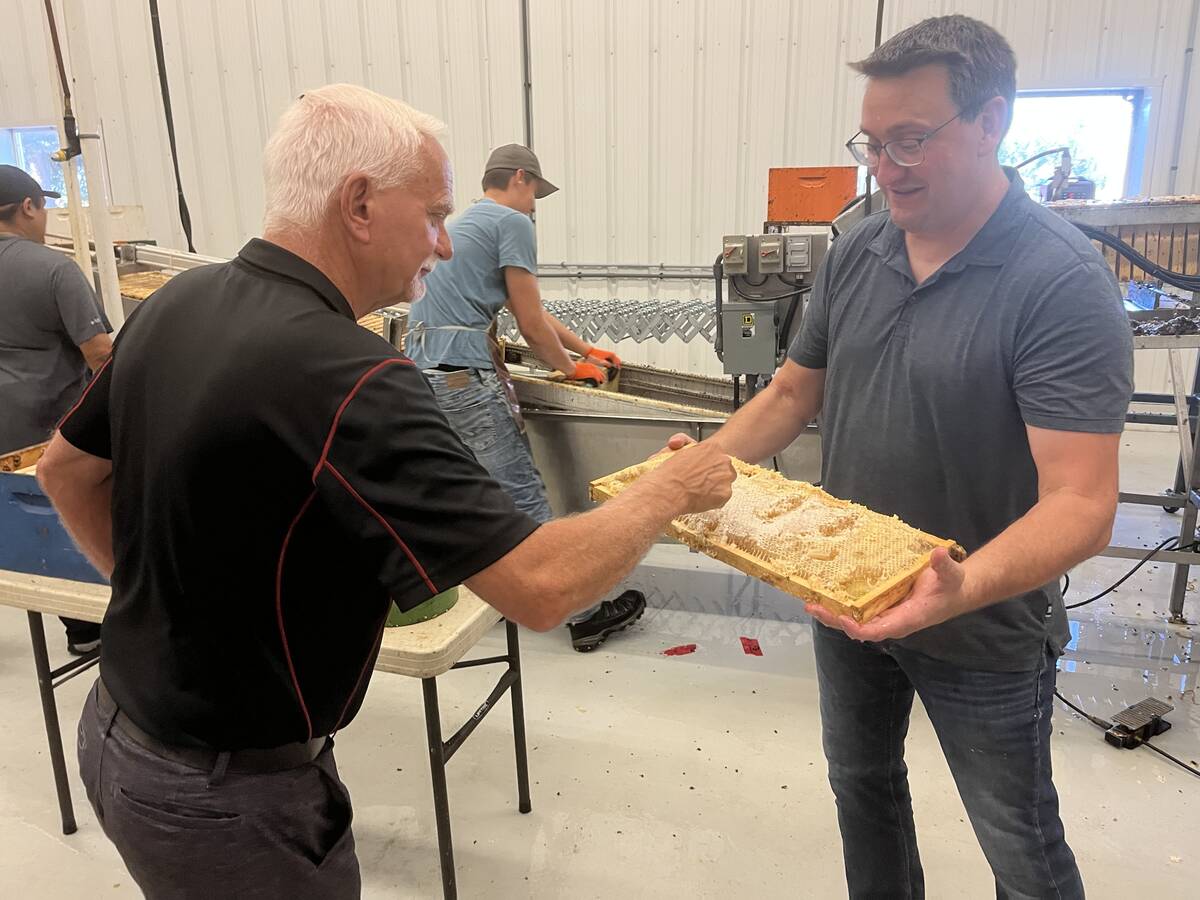Steaming turkey, clouds of fluffy potatoes, heaps of spicy stuffing and ponds of gravy – it is a recipe for disaster if not made safely.
While people manage to safely prepare food in their own kitchen, put a bunch of cooks in a hall for the local annual fowl supper and there could be trouble.
Lucy Beck, environmental health director for the Crossroads Regional Health Authority in Alberta, said community suppers are different than home cooking because of the larger amounts of food.
“Our concern is, ‘do you have enough equipment,’ ” Beck said.
Read Also

Alberta honey business ‘thrives’ despite bumpy beginnings
Thrive Honey showcases its honey production in market where Alberta produces 40 per cent of all honey produced in the country
Community halls tend to get leftover appliances, pots and plates that aren’t always in the best condition.
If a group has five turkeys to thaw and cook, public inspectors want to know if there is enough fridge and stove space.
Sometimes groups go to the local bakery to get a large volume of food cooked at the same time.
Rather than individuals bringing food they cooked at home, Beck said health officials prefer groups to make the food in the hall, which ensures the food is all handled the same.
Other important considerations are whether the proper temperatures can be maintained, whether there are areas for hand-washing and cleaning, and whether cooked food can be kept separate from raw food.
Beck said there have been no recent incidents of illness at community gatherings in her region, but there was one a few years ago. Raw meat juices became mixed with the gravy and at least one person in every family attending the supper was sick.
Beck said the sad part was that the community has never had another public supper. What had been a highlight for the area is now gone.
“We’re not out to close them down,” Beck said about community meals.
Officials prefer that people contact them before a supper is held to work out potential problems. Although the region sends form letters to organizations each year, she said people rarely come to them asking for advice. The region, as do others in the province, also offers a two-day food handling course at a minimal price to assist community groups.
Public health inspector John Prince works in a large rural health district in west-central Saskatchewan. He prefers to do “good communication” with groups in the Greenhead district that hold fowl suppers and other community eating events.
“A lot of people in our area have taken the food handling course. We’re more into education than enforcement. I’d rather work with the grassroots and be proactive than go chasing people down after the fact.”
















